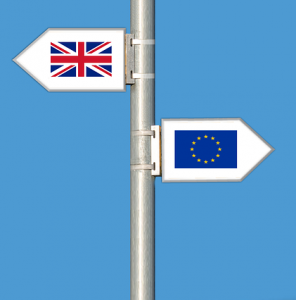
Brexit – Frictionless Trade Ends in 2020
There was a dream that Britain could continue trade with the EU without any hiccups after Brexit. However, the UK has admitted that this would not be possible. The country will implement border controls that could prove problematic for the fresh food supply.
What Is Frictionless Trade?

To better understand what’s going on, we are going to examine what the term frictionless trade means. It is a trade of goods between two countries that doesn’t involve tariffs, taxes, and universal regulations. In this case, it means that the UK is not going to adhere to the EU standards, opting, instead, to implement their own.
To be fair, opting to do it may seem like a bit of a stretch, seeing as how the UK would not be able to retain frictionless trade with the EU after leaving it, despite the efforts by their government officials.
Border Checks and Hold Ups
The biggest problem with the food supply comes in the form of border checks. They are likely to be implemented in January 2021, as the Brexit transition period ends this December. Goods coming from the EU are going to be subject to control and the issue is that this might cause hold-ups in food delivery, especially if the border does not possess the adequate border infrastructure that can deal with a large influx of goods and their timely control.

“The UK will be outside the single market and outside the customs union, so we will have to be ready for the customs procedures and regulatory checks that will inevitably follow.”, Michael Gove, the Cabinet minister said on the matter. The reasons for this type of strict control are there to make sure the borders are safe and that all items and persons entering the UK are thoroughly checked.
Starting in January 2021, all companies that wish to import goods into the UK are going to have to fill out customs declarations.
The Effect
You would think that a slight delay at the border and a few tariffs are not going to affect the country’s economy that much. However, we need to consider the fact that many companies that deal with the distribution of goods are relying heavily on the EU standard and the lack of tariffs. Implementing this is going to cut into their profits in a serious way.
Furthermore, businesses may suffer from the delays even more than they are going to from the tariffs and checks. There are going to be additional costs to make up for this and it is our fear that many businesses will not be able to cope.

There is also going to be a high demand for border officers and vets, due to the large quantity of goods, a significant portion of which belongs to the animal-based products.
We can only hope that the warning to businesses in the UK issued by their government in official statements will suffice in preparing them for the next year.
